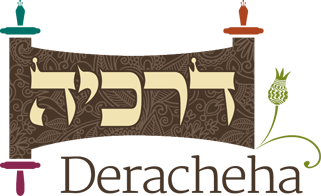| ♥ 0 |
Women do not need to dress tzniusly in front of other women, but they do need to dress tzniusly in front of men.
Marked as spam
|
|
Private answer
Although there is a difference between how a woman presents herself in front of other women and in front of men, tzeniut applies to both situations. As we discuss in our piece here, tzeniut is about much more than arousing sexual thoughts and actually applies at all times, though its specific expression can change with context. For example, public expressions of tzeniut differ from tzeniut in private, among family. When it comes to parents and children or grandparents and grandchildren, the laws of tzeniut, whether regarding touch or clothing, are somewhat relaxed. (See, for example, Kiddushin 80b.) The hard and fast constraints are that they be clothed (once past bar or bat mitzva) and that men of the family not recite Shema, tefillot or berachot, when any family member’s erva is exposed, though there are lenient opinions on this matter with respect to a married woman’s uncovered hair. (To learn more about what is considered erva where, please see our site’s Dress series.) With siblings, there is less of a clear basis for leniency in halachic literature, even for touch. However, widely accepted custom is to adopt more relaxed standards at home with immediate family than with others or in public, but more stringent standards than when just with members of the same gender. Questions such as these are often an example of the tensions involved as a person grows up and begins to pull away from the nuclear family, often developing their own approaches to Halacha. In working these questions through, the idea of tzeniut should be a guiding principle, as we think with sensitivity about how we appear, taking into account our own approach to tzeniut as well as that of other members of our family and our community. Ultimately, each situation needs to be considered independently. Because Halacha does not give clear or precise guidelines here, it is difficult for us to offer detailed guidance, especially in an online forum. If possible, we suggest that you discuss specific questions with a trusted teacher or mentor who knows you personally. Still, we can offer two rules of thumb: One, when considering wearing an item of clothing with family that is more revealing than what you’d wear in public, it should generally be for comfort or for practical reasons. Alluring clothing should be avoided even in family contexts. Two, think about the level of expected interaction with family members, and be more careful when more interaction is expected. For example, one might be less concerned about revealing workout clothes on one’s way in or out of an exercise room where one exercises alone than one would for exercising in a shared space or walking around the house. We hope this helps! See more Q&A here. Marked as spam
|

